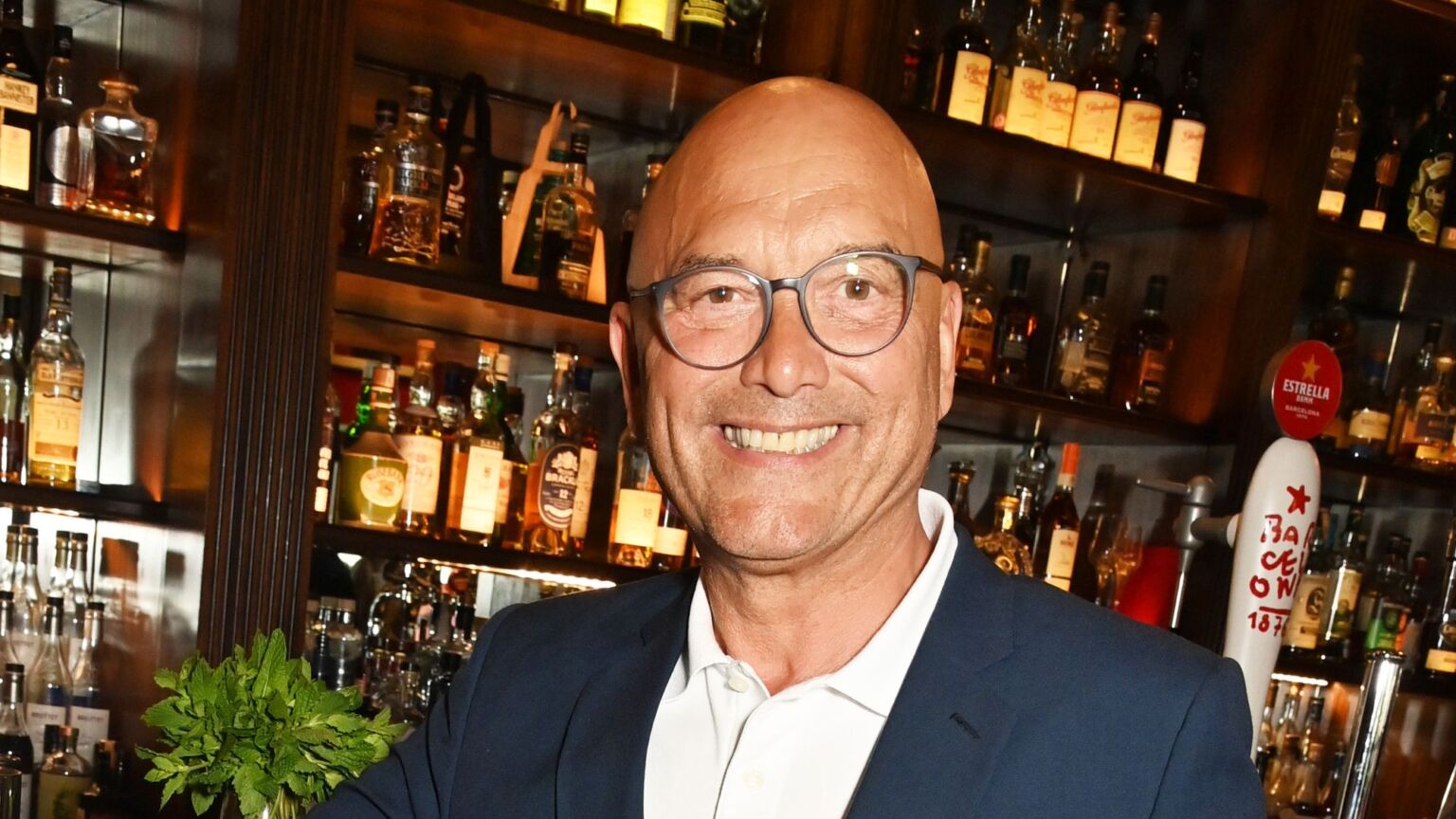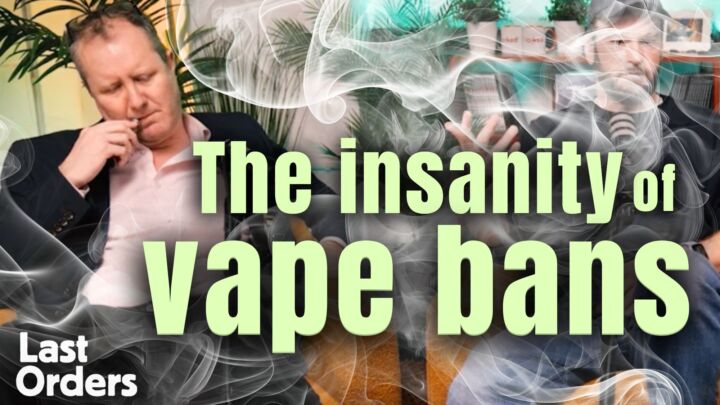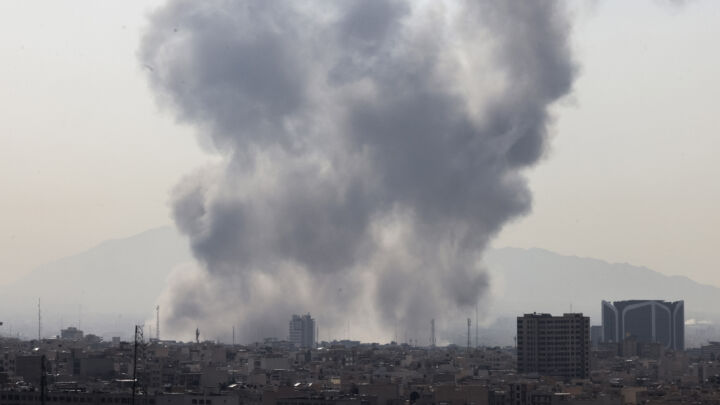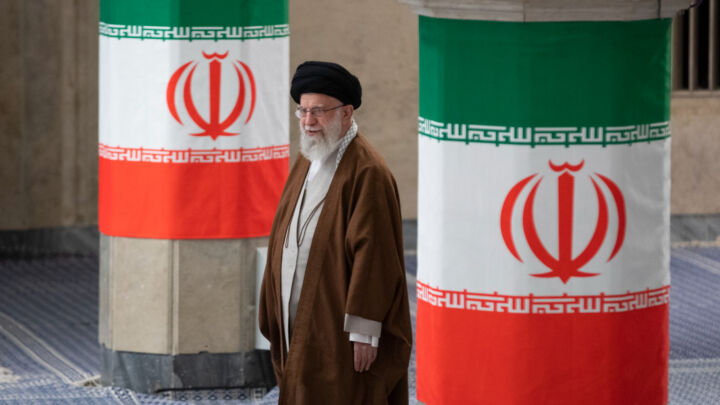Gregg Wallace: is this the tragic last hurrah of #MeToo?
Wallace behaved badly, but the digital crucifixion of him feels a little extreme.

Want unlimited, ad-free access? Become a spiked supporter.
Is it just me or does the Gregg Wallace scandal have the feel of a historical re-enactment? Some seem keen not only to call to account a famous bloke who was oafish and lewd in the workplace but also to rerun the 2010s, to breathe one last gasp of air into the troubled #MeToo movement. They don the costumes of that viral moment, and repeat its slogans, and tell us that Wallace’s misdemeanours are proof of patriarchy’s lingering power. I think it’s time to hit pause – no one, neither woman nor man, would benefit from the resuscitation of that old culture of sexual vengeance.
Two things are true in the Wallace storm. First, he behaved badly. But secondly, the digital crucifixion of him as the vulgar embodiment of rampant male entitlement feels a little off, and a tad extreme, and, if I’m allowed to say this, perhaps unjust? He unquestionably had a case to answer. An independent inquiry into his behaviour when he was hosting MasterChef on the BBC, and other shows too, has uncovered a catalogue of boorish incidents. Wallace seemed to labour under the delusion that it was 1971 and men still had the right to bore women rigid with their infantile banter.
The inquiry has found that 45 of the 83 complaints made against Wallace were upheld. There was one instance of ‘unwelcome physical contact’ and three cases of Wallace being in a ‘state of undress’ – he reportedly liked to whip off his shirt around female staff members. But the majority of the allegations related to ‘inappropriate sexual language and humour’. In short, he loved a crass joke. He was given to outbursts of banter. You don’t have to be a woman to find such doltish chatter in the workplace unpleasant: all the men I know cringe when some tragic self-styled ‘lad’ makes a sex gag at work.
And yet, some perspective is called for, no? Wallace was accused of making ‘lesbian jokes’. He reportedly asked a lesbian member of the production team if she was ‘sure’ she wasn’t attracted to men. A female member of staff asked him if it was okay for her to go to his car to fetch and fix a parking ticket, to which he replied: ‘You can come to my car, but can you handle the fact that everyone will think you just got off with a celebrity?’ He reportedly asked a female colleague if her boyfriend had a nice bum. Kirsty Wark, formerly of Newsnight, says Wallace made ‘sexualised jokes’ during the filming of Celebrity MasterChef in 2011.
Making crude asides or inquiring into the pertness of a colleague’s boyfriend’s butt is definitely bad behaviour. It might even be a case for HR: someone should have rapped this man’s knuckles. But the spinning of these uncouth antics into a horror story about how the patriarchy still has its banterous boot on women’s necks just feels over the top. It imbues a prat like Wallace with awesome power while infantilising the women who overheard his coarse comments. I mean, Kirsty Wark eats politicians for breakfast. She’s one of TV’s great grillers of the powerful. She couldn’t have told Wallace to shut the hell up?
This is the way with #MeToo: it makes devils of men and it makes children of women. Under the regime of #MeToo, individual men who have behaved badly – in some cases very badly – are never just reprimanded for their idiocy, vulgarity or crimes. No, a spectacle is made of them. They are dragged to the public square as fleshy proof of the wickedness and danger of male behaviour. Women, meanwhile, are ironically disempowered. #MeToo reimagines them as perennial victims. They’re seen as lacking the moral capacity even to rebuke a man who says something they’d rather not hear.
That was always my issue with #MeToo: through its medieval sport of destroying bad men’s lives and its post-feminist treatment of women as hyper-fragile, it threatened to undo the very gains of women’s liberation that it claimed to be defending. It birthed a new kind of sexual power that felt every bit as cruel and arbitrary as the power men once enjoyed over women. Under the banner of #MeToo, the cultural establishment could give a Nero-style thumbs up or thumbs down to the careers and lives of men who found themselves accused of certain offences or vulgarities. Be honest, who’s the real power player in the Wallace scandal? That blundering muppet whose media career now lies in tatters, or his army of accusers and the BBC and the Guardian that amplified their complaints? Replacing one form of sexual vengeance with another is not my idea of progress.
The Wallace scandal shines an unforgiving light on the moral cant of the new sexual authoritarians. Many of the media outlets that have lamented his gross behaviour, including his old bosses at the BBC, have been enthusiastic backers of the trans ideology. This is a merciless neo-religion that compels nurses to undress with men. How are we meant to take seriously people who write angry missives about Wallace showing his moobs to a colleague who would rather not see them and who then defend the right of a fella in a dress to show his entire cock to his female colleagues? Far more indecent exposure has been greenlit by the trans lunacy than by Wallace-style ‘laddishness’.
And what happened to the #MeToo cry of ‘Believe women’? Last week, as the Wallace inquiry was preparing to release its findings, the Dinah Project published its grim breakdown of the savage sexual violence Hamas visited on Israeli women as part of its ‘genocidal strategy’ on 7 October 2023. Where were the feminist cries of solidarity with Israel’s women? Many on the left flat-out deny that Hamas committed sexual offences. ‘Believe women, but not those women.’ Far be it from me to mansplain, but a feminism that spills more angry ink over a twat cracking a ‘lesbian joke’ than it does over the sight of Shani Louk’s bruised, broken body being spat on and hit with sticks by a feral mob of misogynists is a feminism that deserves no respect.
Then there’s the darkest question that hangs over this brief and fiery rebirth of the #MeToo movement, the one no one wants to ask. Why did it take decades for society to acknowledge the staggering violence experienced by the working-class victims of those mostly Muslim ‘grooming gangs’, whereas the complaints of the professional woman who’d had a gutful of Wallace’s sexist idiocy dominated the headlines the minute they came out? Answering that question might just reveal the truth of where power really lies today. And it isn’t with sad, ageing men who say dumb, obnoxious things at work.
Brendan O’Neill is spiked’s chief political writer and host of the spiked podcast, The Brendan O’Neill Show. Subscribe to the podcast here. His new book – After the Pogrom: 7 October, Israel and the Crisis of Civilisation – is available to order on Amazon UK and Amazon US now. And find Brendan on Instagram: @burntoakboy
You’ve hit your monthly free article limit.
Support spiked and get unlimited access.
Support spiked and get unlimited access
spiked is funded by readers like you. Only 0.1% of regular readers currently support us. If just 1% did, we could grow our team and step up the fight for free speech and democracy.
Become a spiked supporter and enjoy unlimited, ad-free access, bonus content and exclusive events – while helping to keep independent journalism alive.
Monthly support makes the biggest difference. Thank you.










Comments
Want to join the conversation?
Only spiked supporters and patrons, who donate regularly to us, can comment on our articles.